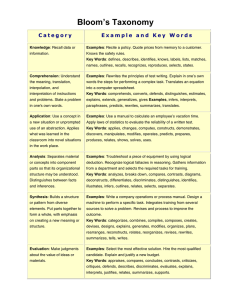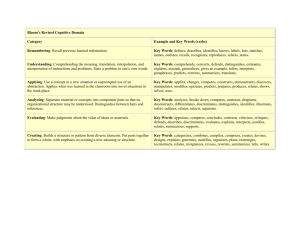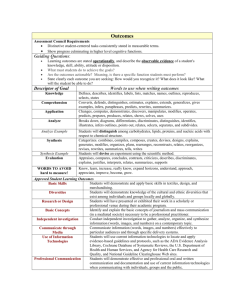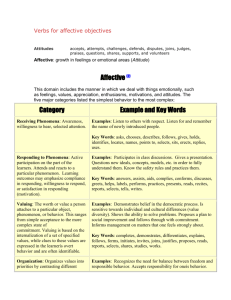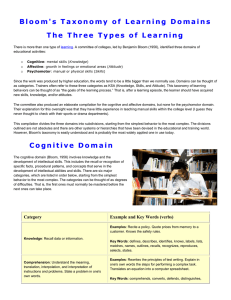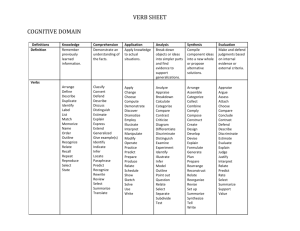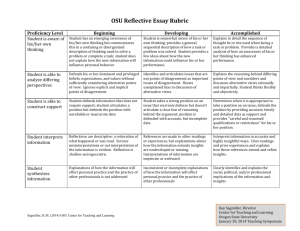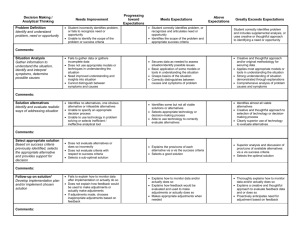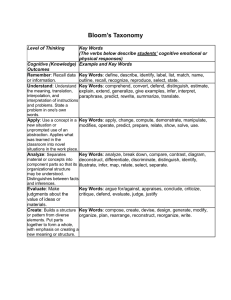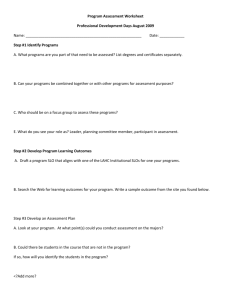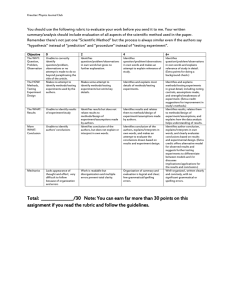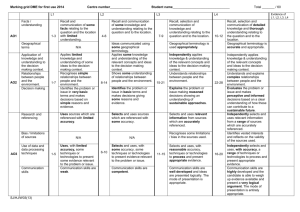Bloom`s Taxonomy - Curriculum Guide, UNCG
advertisement
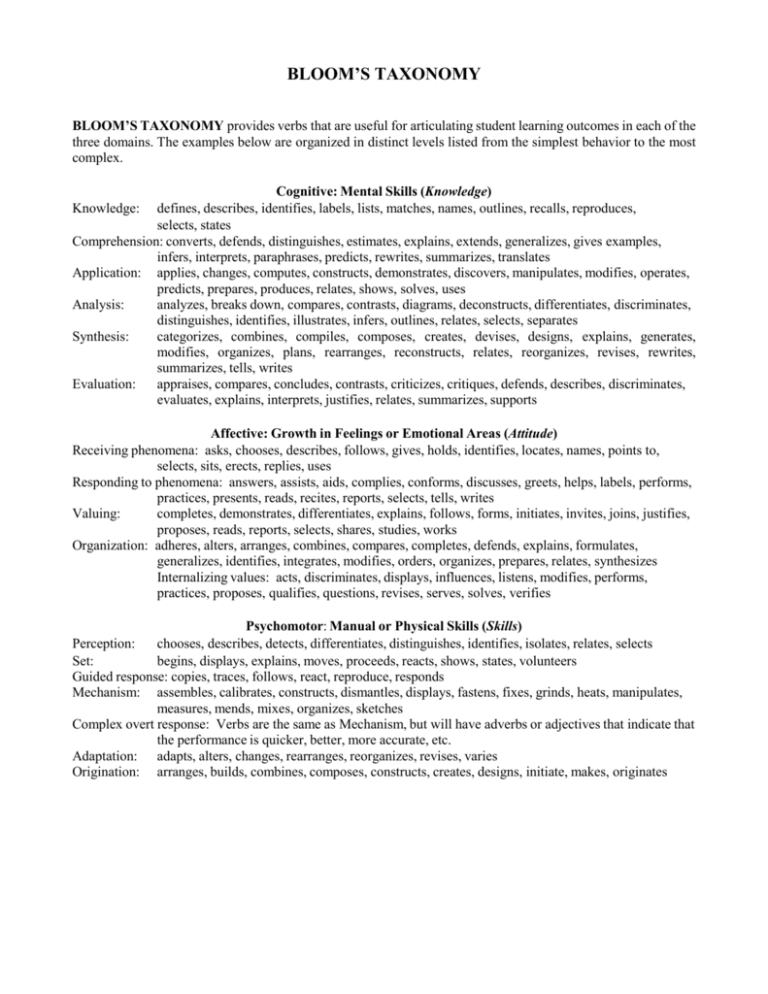
BLOOM’S TAXONOMY BLOOM’S TAXONOMY provides verbs that are useful for articulating student learning outcomes in each of the three domains. The examples below are organized in distinct levels listed from the simplest behavior to the most complex. Cognitive: Mental Skills (Knowledge) defines, describes, identifies, labels, lists, matches, names, outlines, recalls, reproduces, selects, states Comprehension: converts, defends, distinguishes, estimates, explains, extends, generalizes, gives examples, infers, interprets, paraphrases, predicts, rewrites, summarizes, translates Application: applies, changes, computes, constructs, demonstrates, discovers, manipulates, modifies, operates, predicts, prepares, produces, relates, shows, solves, uses Analysis: analyzes, breaks down, compares, contrasts, diagrams, deconstructs, differentiates, discriminates, distinguishes, identifies, illustrates, infers, outlines, relates, selects, separates Synthesis: categorizes, combines, compiles, composes, creates, devises, designs, explains, generates, modifies, organizes, plans, rearranges, reconstructs, relates, reorganizes, revises, rewrites, summarizes, tells, writes Evaluation: appraises, compares, concludes, contrasts, criticizes, critiques, defends, describes, discriminates, evaluates, explains, interprets, justifies, relates, summarizes, supports Knowledge: Affective: Growth in Feelings or Emotional Areas (Attitude) Receiving phenomena: asks, chooses, describes, follows, gives, holds, identifies, locates, names, points to, selects, sits, erects, replies, uses Responding to phenomena: answers, assists, aids, complies, conforms, discusses, greets, helps, labels, performs, practices, presents, reads, recites, reports, selects, tells, writes Valuing: completes, demonstrates, differentiates, explains, follows, forms, initiates, invites, joins, justifies, proposes, reads, reports, selects, shares, studies, works Organization: adheres, alters, arranges, combines, compares, completes, defends, explains, formulates, generalizes, identifies, integrates, modifies, orders, organizes, prepares, relates, synthesizes Internalizing values: acts, discriminates, displays, influences, listens, modifies, performs, practices, proposes, qualifies, questions, revises, serves, solves, verifies Psychomotor: Manual or Physical Skills (Skills) Perception: chooses, describes, detects, differentiates, distinguishes, identifies, isolates, relates, selects Set: begins, displays, explains, moves, proceeds, reacts, shows, states, volunteers Guided response: copies, traces, follows, react, reproduce, responds Mechanism: assembles, calibrates, constructs, dismantles, displays, fastens, fixes, grinds, heats, manipulates, measures, mends, mixes, organizes, sketches Complex overt response: Verbs are the same as Mechanism, but will have adverbs or adjectives that indicate that the performance is quicker, better, more accurate, etc. Adaptation: adapts, alters, changes, rearranges, reorganizes, revises, varies Origination: arranges, builds, combines, composes, constructs, creates, designs, initiate, makes, originates
